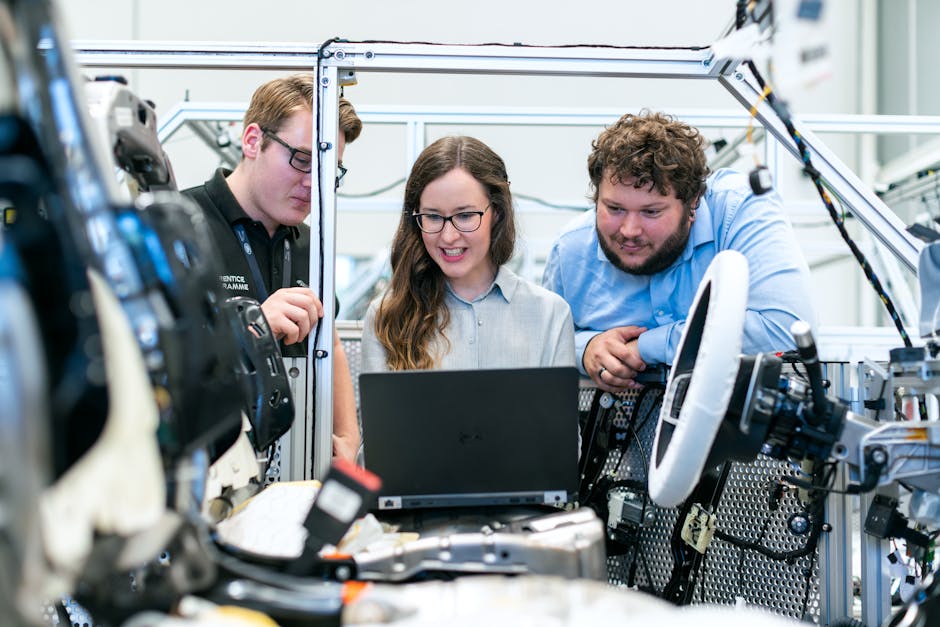CMOs Embrace AI-Powered Agility in 2025: A Shifting Marketing Landscape
Marketing departments across the globe are undergoing a significant transformation in 2025, driven by the increasing adoption of artificial intelligence (AI) and the need for adaptable teams. Chief Marketing Officers (CMOs) are leading this charge, blending human creativity with machine learning capabilities to achieve unprecedented levels of efficiency and effectiveness. This strategic blend is impacting marketing strategies, budget allocation, and talent acquisition across industries.
The Rise of AI-Driven Marketing Automation
In 2025, AI is no longer a futuristic concept; it’s a vital tool shaping marketing strategies. CMOs are leveraging AI-powered platforms for tasks ranging from predictive analytics to personalized content creation and campaign optimization. This automation frees human marketers to focus on strategic initiatives, fostering innovation and creative problem-solving. The shift is evident across sectors, from e-commerce to B2B, with a notable impact on customer relationship management.
Enhanced Customer Segmentation and Targeting
One of the most impactful applications of AI is in customer segmentation and targeting. Sophisticated algorithms analyze vast datasets – encompassing customer demographics, purchase history, and online behavior – to identify specific customer segments with remarkable precision. This refined targeting leads to more effective campaigns, optimizing return on investment (ROI) and boosting conversion rates. The technology allows for hyper-personalization, improving customer engagement and fostering brand loyalty.
Adaptable Teams: The Human Element in the AI Revolution
While AI plays a pivotal role, the human element remains crucial. CMOs are recognizing the need for adaptable teams possessing both technical and creative skills. These teams must be agile enough to navigate the rapidly evolving technological landscape and effectively integrate AI tools into their workflows. The demand for marketers with data analysis and AI literacy skills is surging.
Reskilling and Upskilling Initiatives
The shift towards AI-powered marketing necessitates significant investment in reskilling and upskilling initiatives. Many companies are providing training programs to equip their marketing teams with the necessary technical expertise. This includes workshops on data analytics, machine learning principles, and the effective utilization of AI marketing platforms. The investment is a strategic move to maximize the benefits of AI integration.
The Evolving Role of the CMO in 2025
The role of the CMO is undergoing a profound transformation. No longer solely focused on traditional marketing channels, today’s CMO must be a strategic leader capable of navigating the complex interplay between human creativity and AI-driven automation. They act as a bridge between technology and marketing strategy, integrating AI capabilities while ensuring a human-centric approach.
Data-Driven Decision Making and Strategic Foresight
A key characteristic of successful CMOs in 2025 is their ability to leverage data-driven insights for strategic decision-making. They are adept at interpreting complex data sets generated by AI systems and using this information to inform marketing strategies, allocate budgets effectively, and measure the impact of campaigns with precision. This data-driven approach minimizes risk and maximizes return on investment.
Budget Allocation and ROI Measurement in the Age of AI
The integration of AI significantly impacts how CMOs allocate marketing budgets. A key aspect is measuring ROI effectively. While traditional methods remain important, the advent of AI enables more precise tracking and measurement of campaign performance. This detailed analysis guides future budget decisions, leading to more efficient resource allocation and improved return on investment.
Key Metrics for AI-Driven Marketing Success in 2025:
- Customer Lifetime Value (CLTV) Increase: AI-driven personalization leads to higher CLTV.
- Improved Campaign ROI: Precise targeting and optimization boost campaign effectiveness.
- Enhanced Customer Engagement Metrics: Increased click-through rates, conversion rates, and social media interactions.
- Reduced Marketing Costs: Automation leads to operational efficiencies and decreased expenditures.
- Faster Time to Market: AI accelerates the development and launch of campaigns.
Challenges and Future Trends in AI-Powered Marketing
Despite its potential, integrating AI into marketing presents challenges. Concerns about data privacy, algorithmic bias, and the need for robust data security are paramount. CMOs must address these ethical and practical considerations to ensure responsible AI implementation. Future trends include the rise of AI-driven content creation, more sophisticated predictive analytics, and greater integration of AI across the entire customer journey.
Ethical Considerations and Regulatory Landscape
The ethical implications of AI in marketing are becoming increasingly significant. CMOs are under pressure to ensure responsible data usage, address potential biases in algorithms, and comply with evolving data privacy regulations. This requires a careful and considered approach to AI integration, prioritizing ethical considerations alongside technological advancement. The regulatory landscape is continually evolving, demanding adaptation from organizations.
Conclusion: A New Era of Marketing Agility
The year 2025 marks a pivotal moment in marketing history. CMOs are successfully harnessing the power of AI to create adaptable teams, drive efficiency, and deliver personalized customer experiences at an unprecedented scale. While challenges remain, the potential benefits of integrating AI into marketing strategies are immense. The future of marketing is agile, data-driven, and deeply personalized, reflecting the ongoing evolution of the digital landscape and the creative integration of human ingenuity and artificial intelligence.

